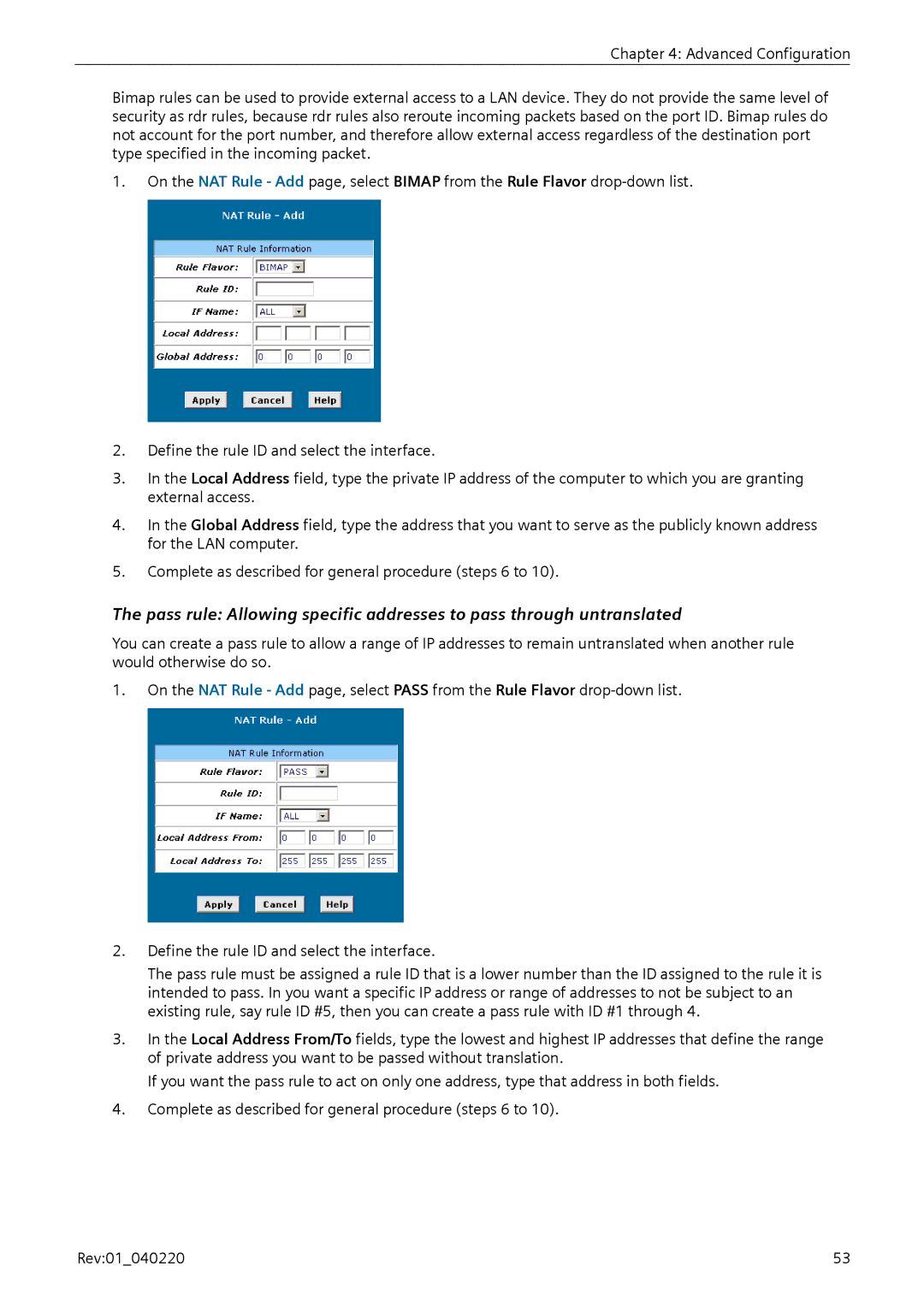
Chapter 4: Advanced Configuration
Bimap rules can be used to provide external access to a LAN device. They do not provide the same level of security as rdr rules, because rdr rules also reroute incoming packets based on the port ID. Bimap rules do not account for the port number, and therefore allow external access regardless of the destination port type specified in the incoming packet.
1.On the NAT Rule - Add page, select BIMAP from the Rule Flavor
2.Define the rule ID and select the interface.
3.In the Local Address field, type the private IP address of the computer to which you are granting external access.
4.In the Global Address field, type the address that you want to serve as the publicly known address for the LAN computer.
5.Complete as described for general procedure (steps 6 to 10).
The pass rule: Allowing specific addresses to pass through untranslated
You can create a pass rule to allow a range of IP addresses to remain untranslated when another rule would otherwise do so.
1.On the NAT Rule - Add page, select PASS from the Rule Flavor
2.Define the rule ID and select the interface.
The pass rule must be assigned a rule ID that is a lower number than the ID assigned to the rule it is intended to pass. In you want a specific IP address or range of addresses to not be subject to an existing rule, say rule ID #5, then you can create a pass rule with ID #1 through 4.
3.In the Local Address From/To fields, type the lowest and highest IP addresses that define the range of private address you want to be passed without translation.
If you want the pass rule to act on only one address, type that address in both fields.
4.Complete as described for general procedure (steps 6 to 10).
Rev:01_040220 | 53 |
